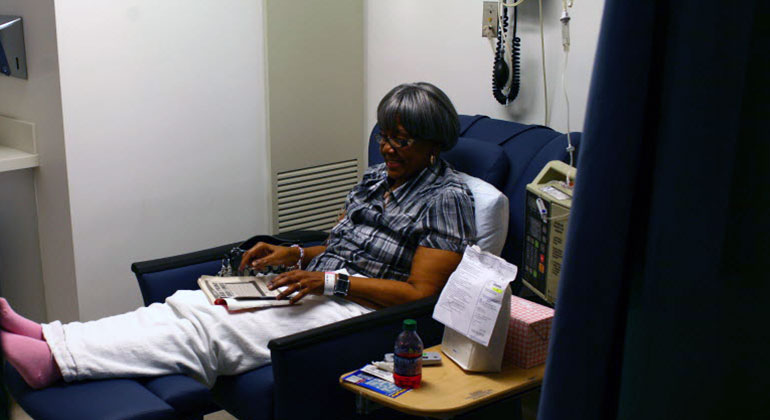
High Risk Program
Some women have a higher than usual risk of developing breast cancer. At the Dubin Breast Center, we have a special program designed to help, called the Cancer Risk Evaluation Program (CaRE). You may be at increased risk for a variety of reasons, such as genetics or a personal history of cancer. The CaRE Program is affiliated with The Tisch Cancer Institute at Mount Sinai, The Mount Sinai Hospital, and the Icahn School of Medicine. We offer a full range of services for risk assessment, cancer prevention, research, and education. Our goal is to help you understand, reduce, and manage your risk for developing breast cancer.
Who Is Eligible?
Women who are eligible for the CaRE Program include those who have:
- An inherited gene mutation (BRCA 1 or BRCA 2) or other genetic syndrome
- A personal or significant family history of premenopausal breast or ovarian or male breast cancer
- A breast biopsy or surgery revealing lobular carcinoma in-situ or atypical hyperplasia
- A personal history of radiation therapy to the chest for lymphoma
Our Evaluation Process
The first step is to create a personalized cancer risk profile. To do this, we carefully consider your medical and family history. This profile will help guide you as you make decisions about your care. There are several approaches to reduce your risk and we will discuss all of them with you. The options include close surveillance with regular clinical evaluation and examination; risk-reducing medications (chemoprevention); and preventive (prophylactic) surgery. We can also recommend lifestyle changes, such as stopping smoking or losing weight. We may refer you for genetic counseling and possible testing.
Personalized, Multidisciplinary Care
The CaRE Program will assess your personal risk for developing breast cancer. We also offer comprehensive plans to help you reduce your breast cancer risk, based on your situation and the most up-to-date information. As part of the program, we monitor you carefully, which gives you the best chance for early cancer detection. The earlier we find and start to treat a cancer, the better your chances of full recovery. We are located within the Mount Sinai Health System, one of the world’s premiere academic medical centers. This means we can provide you with access to the latest advances in health care. This includes access to clinical research studies designed to develop novel preventive therapies.
Program Services
Among the outstanding services offered at the Dubin Breast Center’s CaRE Program are:
- Breast cancer prevention clinical research studies designed to develop novel therapies for reducing breast cancer risk
- Consultation with medical oncologists and plastic surgeons when indicated
- Expert pathology biopsy review by specialized breast pathologists
- Genetic counseling and testing by certified genetic counselors
- Preventive (prophylactic) surgery, if appropriate
- Intensive follow-up with surveillance exams and coordination of imaging
- Nutrition and lifestyle counseling for risk reduction, focused on diet, weight loss, and exercise
- State-of-the-art breast cancer screening, such as 3D mammography, ultrasound, and magnetic resonance imaging
- Support programs to address the physical and emotional needs of living with breast cancer risk
Partnership with BioMe to study Risk of Breast Cancer
We are involved in research about the role of genetics in cancer risk. We have partnered with the Charles Bronfman Institute for Personalized Medicine’s BioMe Biobank Program to use genomics to improve our understanding of cancer risk. The goal is to learn more about how risk factors vary among different groups of people. We expect this knowledge will lead to better personalized planning for managing breast cancer risk.
The BioMe Biobank Program was established in 2007. The bank contains more than 315,000 DNA samples and more than 370,000 plasma samples (all stored without names) from approximately 33,000 Mount Sinai patients, as of October 2015. We have paired these samples with data from a questionnaire about activities of daily life and family medical history. If you agree to participate, we will ask you to donate one blood sample. This allows us to isolate the DNA and conduct genotyping to analyze individual differences in sequence. We hope that this approach will also help us study breast cancer risk within distinct multi-ethnic populations. These data should also be helpful for future research.
If you would like to participate in BioMe, tell your doctor. Our research staff will coordinate collection of a blood sample and questionnaire.